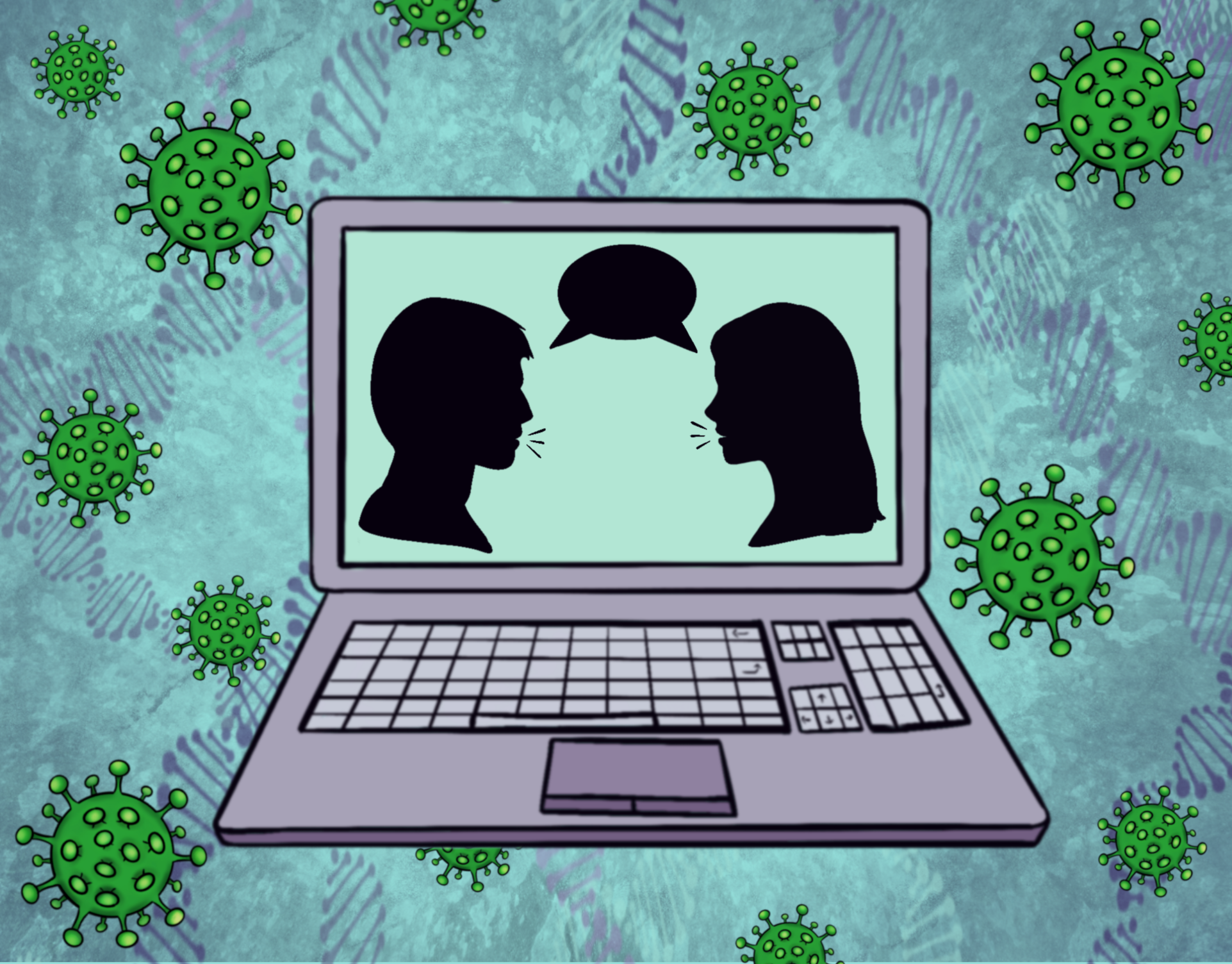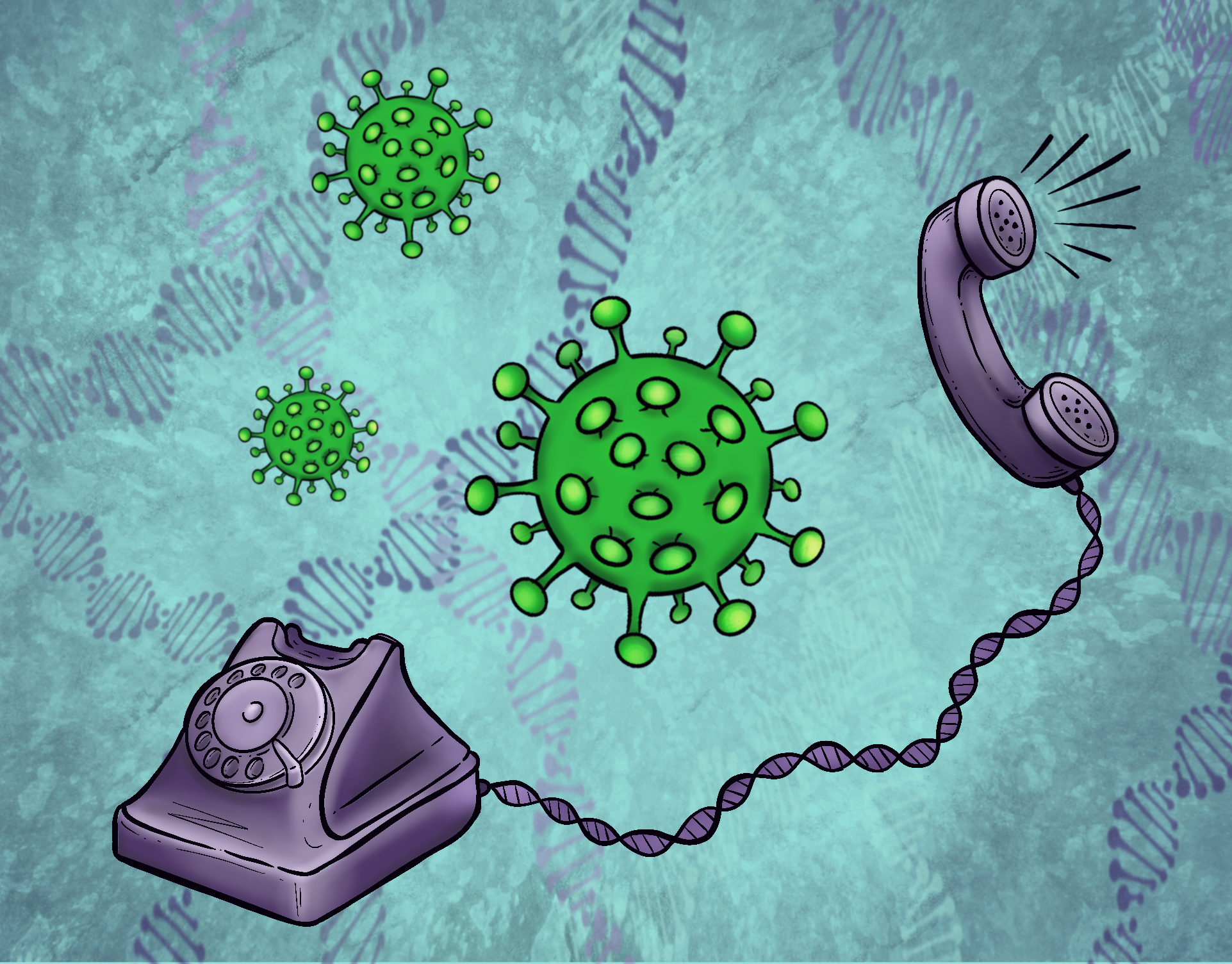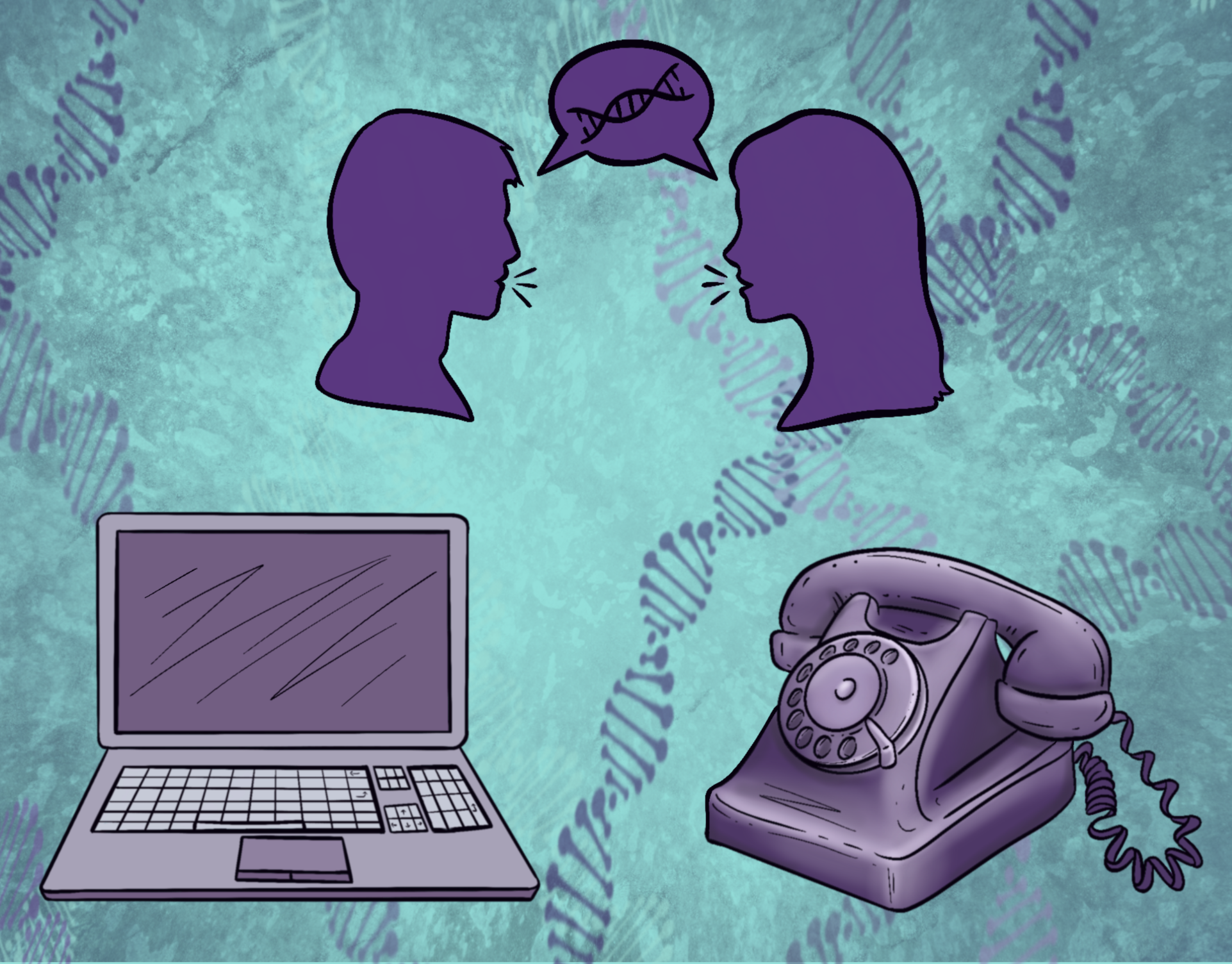Series Overview: Doctors usually turn to genetic testing to screen for health risks or spot diseases that are hard to diagnose, but the available education surrounding what these tests actually do is often bogged down with confusing scientific language that makes it difficult to understand. This is where Genetic Counselors (GC) come in to provide personalized assistance to both patients and their families. My name is Elizabeth and I have a Masters degree in Human Genetics & Genetic Counseling, which means that I spent 2.5 years after 4 years of college learning how to become a translator of the alphabet soup that is Genetics and explain it in a way that makes sense to everyone. If you are here reading this blog you may be dealing with some health complications that do not have a known cause, your doctor may have suggested genetic testing and/or counseling to learn more about your risk factors for disease or symptoms your body is showing, or you may just be curious about this type of testing in general. Ask a GC is a blog series that aims to empower patients (like you!) to know WHO to ask, WHAT to ask, WHEN to ask it, and WHERE to find answers about your Genetics questions and how they play into your healthcare journey. As a Genetic Counselor who has seen all types of genetic disease both professionally and personally, I aim to bring you this information with compassion and understanding as you navigate the interesting but sometimes overwhelming world of Genetics!
Please note: Though GenomicMD's Ask a GC series is written under the guidance of healthcare professionals and may refer to recent medical recommendations, it is not intended to be used as personalized medical advice. For medical evaluation or to develop a healthcare plan, please speak with your doctor or healthcare provider.
Ask a GC: Reflecting on Telemedicine in the age of Covid 19
In March 2020, the United States recognized the outbreak of the SARS-CoV-2 virus, known as the coronavirus disease 2019 (COVID-19) pandemic and as a result telephone and video medicine (sometimes called “telegenetics” in this field) took off. When the COVID-19 pandemic began I immediately became a firm believer in virtual medicine as a valid means to deliver public healthcare. Now, after almost 3 years providing genetic counseling both in person and virtually that opinion has not changed. Let's talk about why in this blog post.
My personal experience with Telegenetics
In my experience as both an in person and telemedicine healthcare provider over the last few years, virtual medicine has been an incredibly useful and practical addition to healthcare delivery services overall. I am not saying that telemedicine does not have its challenges (tech issues GALORE) but generally speaking these get worked out quickly most of the time. The patients I have needed to call on the phone or complete video visits with do not bat an eye - they talk me through their issues and I more or less do and say the same things that I would during an in-person visit.
The biggest difference for telemedicine is that my patients are now often talking from the comfort of their couch, or sometimes even their bed (for the ultra-comfy). Working in a field of medicine that can be emotional and difficult to discuss at times, I have found that patients having the ability to be comfortable in a familiar environment can lead to a much more fruitful conversation with me about their health.

Transitioning to Telegenetics in the COVID-19 era
Prior to COVID-19 traditional genetic counseling, for me, had always been in person. This typically included one to two in-person visits with a genetics provider at a healthcare facility or private office. Then, quarantine required genetic counselors to suddenly rethink this model and rapidly changed genetic counseling services across the United States. And when I say rapidly… I mean pretty much overnight. Not all but many genetic counseling (GC) visits across the country were suddenly being conducted via video or telephone rather than in-person.
In the clinic I was working in at the time, we had been asking about the possibility of doing telemedicine for years… and suddenly we were doing only that, and learning HOW to do it WHILE we did it.
Satisfaction towards Telegenetics
What I have learned since then, from both genetic counselors and patients, is that overall satisfaction with telemedicine services is extremely high. Anecdotally, the majority of patients I have worked with have told me that they are satisfied with the option of telemedicine overall, would use the services again, feel comfortable communicating via telemedicine, and feel that it improves access to genetics services.
My personal overall satisfaction with genetic counseling has also been high since incorporating telemedicine into my routine. I cannot think of a single instance since beginning to do telegenetics where I have had the thought, “wow I really think that would have gone more smoothly in person” (tech difficulties aside).
Although the COVID-19 pandemic will [hopefully] end someday, it is likely that there will be lasting changes to the provision of genetic counseling services because of the benefits we have seen with regular use of telemedicine.

Benefits of Telegenetics
It is well-known in Genetics professions that our services are not always the most accessible. We tend to work mainly in urban areas, and in some places have insanely long wait lists because there are not many of us available to provide the service. For patients, traveling to an in-person clinic that is not close to home can be expensive and take a lot of time. When I say expensive, this can apply to both the money spent traveling to the appointment (gas, bus fare, etc.) and also the amount of time lost that could have been spent being paid at work/taking paid time off. As a patient, I have felt these pains myself and understand how frustrating they can be.
Expanding telegenetics services could reduce these types of burdens. It may also help increase access to genetics services for traditionally underserved populations, including individuals living in rural areas, in communities of diverse socioeconomic status, or in communities without a local genetics provider. All of this being said, further research is still needed to better understand the influence of telemedicine on mitigating or exacerbating healthcare disparities amongst these populations.
Another observation I have made is how many more family members I have been able to coordinate testing for during the pandemic. Oftentimes when a positive result is identified in a patient, we will recommend that their first-degree relatives (parents, siblings, and children) and extended family also be tested. Prior to telemedicine being made more accessible this process was particularly difficult. Oftentimes, relatives live quite a distance away and may not want or are unable to travel to a clinic for testing. I especially feel for elderly or disabled relatives, who sometimes have additional barriers that make travel especially difficult.
Telemedicine has made testing family members a more tangible option overall. Most of my virtual patient’s relatives have been more than willing to jump on a phone call and have a saliva kit sent to be completed at their home (a process that takes 30 minutes to an hour), rather than driving across the state for a short conversation and having their blood drawn (many hours later). This option was often logistically easier for them… and for me!
Limitations of Telegenetics
All of this being said, I recognize that telemedicine is not for everyone whether speaking from the provider or patient perspective. Some feel that aspects of detailed conversations are lost when we are not in person, and I do not completely disagree. Genetic counseling is a field in which non-verbal cues can be so helpful in the delivery of information, and that is something I cannot rely on when I am on the phone with a patient (or sometimes even on video). While genetic counselors are trained to be masters of communication, telemedicine has created challenges for us that we were not initially instructed on how to tackle. I also recognize the value that being in the same room as your provider can sometimes bring for a patient!
In Conclusion...
Although it remains unclear whether nationwide genetics services will decide on a return to an exclusively in-person model after the pandemic, I support continuing to incorporate a hybrid model of telemedicine (telephone and video) and in-person options based on patient preference.

While we currently do not offer genetic counseling here at GenomicMD, we can help clinicians make recommendations for local genetics providers if that appeals to them. The National Society of Genetic Counselors also allows people to search for a genetic counselor using this tool, which has the ability to select in-person or telehealth options for genetic counseling services.
I hope that you enjoyed this reflection on telemedicine, one of the many ways that our world has changed in the past couple of years. Future blog posts will go into more specific examples of genetic counseling cases. We hope the next few posts will help you develop a better understanding of how genetic counseling may benefit you, your family, or someone you know!
Blog glossary:
Telegenetics - The ability to provide traditional genetic counseling services and testing via telemedicine. Communication is by telephone or video conferencing.
Non-verbal cues - The transmission of messages or signals through a nonverbal platform such as eye contact, facial expressions, gestures, posture, and body language.